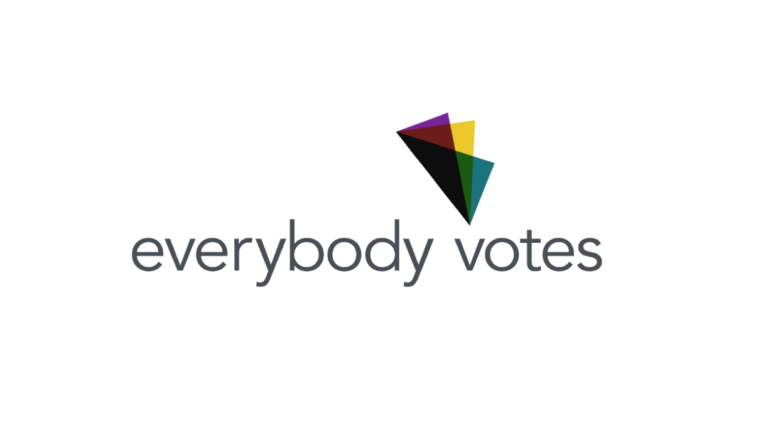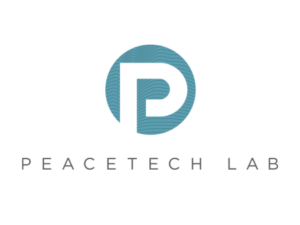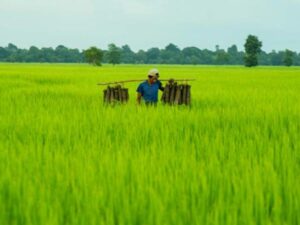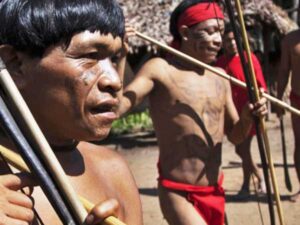The Everybody Votes Campaign works to address and narrow the racial disparity that exists in access to voting.
Nellie Sires of Voter Rights Project – Everybody Votes Campaign spoke with Ashley Hopkinson on January 30, 2024. Click here to read the full interview with insights highlighted.
Ashley Hopkinson: Can you introduce yourself and the organization that you’re with?
Nellie Sires: I’m the Executive Director of the Everybody Votes Campaign (EVC). We are a national organization laser-focused on narrowing the voter registration gap between communities of color and white folks.
Ashley Hopkinson: When you first created this organization, what was the problem you were trying to solve, and how is the organization actively solving that?
Nellie Sires: The reason we were founded was to address and narrow the racial disparity that exists in access to voting. We believe that our small-d democracy functions best when the electorate is representative of the citizens of the country in which we live. Unfortunately, the US has a very long history of disregarding its Black, Brown, Indigenous, Hispanic, and Latino citizens. While the 15th Amendment was designed to bring representation to people of color, we know that Jim Crow laws put into place a number of different restrictions that made it challenging, or even impossible, for people of color to be able to access their rightful enfranchisement.
Unfortunately, new forms of those Jim Crow laws still exist today, though the VRA [Voting Rights Act] hasn’t been meaningfully changed to address this. We’re now seeing lots of spiritless accusations of voter fraud that are being targeted at particular communities. It’s not even a ‘dog whistle’ kind of racism — people are shouting it quite loudly, saying that there are only issues of “fraud” in communities of color. So our work specifically addresses those voting disparities, not through policy, but through the mechanism of registration. The bread-and-butter of our work is site-based registration and mail registration. But the larger issue that we are solving is that disparity, because we don’t have an electorate that’s reflective of the citizens of our country.
Ashley Hopkinson: How as an organization do you reach the people that you’re trying to serve? How do you ensure you’re able to carry out that mission?
Nellie Sires: We’re a unique organization in that we live in this liminal space between being a funder and being an actual practitioner ourselves. More than 70% of our budget goes directly to partner organizations that are doing this work on the ground. We reach people by talking to groups that have been doing this work in their communities for many years. EVC was founded at the end of 2015, so we’re new in this space, and we recognize that. We’ve been very fortunate that we’ve been able to move hundreds of millions of dollars into the hands of these groups.
Our partner organizations are wide-ranging and absolutely fantastic: we work with churches, food banks, abortion clinics, immigration rights groups, environmental groups, and justice groups. So there’s a really wide range of missions between these organizations, and yet registration is a key way to engage the particular communities that they serve as an entry point to that process. Our partner organizations are not only successful at registering folks but continuing to engage them. When it comes to ensuring that those same communities turn out and vote, they’re great at those efforts, which makes logical sense. If you’re someone I know from my neighborhood who’s lived in my community for years, and you’re talking to me about the importance of immigration or reproductive justice and I just registered to vote with you, I may then have a mental affiliation with you. That affiliation will motivate me to go out and vote when the time comes.
Many of our organizations have the same people that do registration work and GOTV [Get Out The Vote] work, so we find it’s most effective to work with community groups on the ground. There are some places where there isn’t the capacity to hit our goals and our numbers, so we do sometimes contract directly with vendors, but our priority is partner relationships, which make up a bulk of our work and our registrations.
Ashley Hopkinson: How do your partners benefit from your work?
Nellie Sires: We don’t enter into typical grant agreements with our partners — instead, we do something called a joint effort agreement. We partner with groups on the ground to provide a massive amount of training at the beginning of that process, and we work closely with state coordinating tables. We offer training and support throughout our partnership, and offer a suite of data storytelling options so that our partners can track their work and do the level of quality control that is necessary in voter registration work.
I mentioned earlier that we’re dealing with modern forms of Jim Crow laws, in terms of restrictions placed on registration, requiring different forms of proof of residency, and IDs that cost money to obtain. These are all policies that were designed to suppress certain communities from being able to vote, so it’s important that we have robust systems in place to ensure that every registration we’re collecting meets the standard of the local community and local clerks that process those registrations. That’s a huge undertaking for a small group that maybe doesn’t do this as part of their day-to-day work, so we offer the resources, data, and technical support that’s crucial to doing this work well and doing it safely, especially when there are enemies of democracy making a fuss about issues of voter fraud that don’t exist.
Ashley Hopkinson: What about your approach makes your work distinctive in this field?
Nellie Sires: Our joint effort with our partners sets us apart. We’re not just a funder, we’re deeply engaged in these partnerships. Another thing that makes us unique is our laser focus on one particular area of civic life. We often joke that we’re excited for a day when EVC doesn’t have to exist anymore, because automatic voter registration is the law of the land, it’s well-implemented, and the government agencies necessary to accomplish this are adequately funded. We’re a long way off from that, but that’s the goal. We’ve also chosen not to engage in the policy side of that fight directly. We’re engaging directly with communities that have been actively disenfranchised from the voting process through our partner organizations and through our mail program.
There are other fantastic organizations doing that policy work or doing direct advocacy, and we will partner with them. We have a lot of expertise and data to provide to them about what it takes to register folks. We can provide ground-level insights of, for example, when a particular clerk in Georgia or Wisconsin is moving slowly, and they’ve been sitting on a batch of forms for two weeks, we can explain that they only ever do these forms when our groups deliver them. We’ll work with partners in this space to help address some of these issues, but our focus is doing the direct work of registering voters. Being clear about our mission has proven helpful when we have to make tough choices in a challenging fundraising environment, and even more broadly, a challenging environment for folks doing civic engagement and small-d democracy work.
Ashley Hopkinson: How do you define success for your organization? And how do you know you’re making progress toward it?
Nellie Sires: Since we were founded in 2015, our partners and our mail programs have collected more than 5.5 million registrations, and 76% of those registrations are people of color. We are the largest registration operation in the country, and thereby the world, because most western democracies don’t have the same hurdles that we do here. Because of how we work with our partners and because of our site-based registration tactics, we know that our registrants are often those folks that are statistically some of the least likely voters, but among these people, we have some of the highest turnout. Our specialized tactics show how clearly effective our work is.
Also, we don’t frame our work around the election cycle. The election cycle is certainly important in terms of registration deadlines, and it can drive a sense of urgency with funders and partners, but building a program that registers folks year round is crucial. Our work demonstrates that registering in the off year is just as — or even more — effective than registering during the on year, which makes logical sense because once you’re on that file, you’ll be contacted by the local government to be reminded to vote. You’re also contacted by other civic engagement groups. You might be contacted by local campaigns, and candidates are paying attention to you, because you now matter to them.
One of our baselines that we use for comparison is looking within a state for the last two-way statewide margin. It doesn’t matter who won, we just care about the difference between the winner and that loser. We then investigate what would change if we were to register 20% of the unregistered people of color in that state and if it would make a difference in that margin. To us, that’s a good measure of the potential power of disenfranchised communities of color in an area. That’s how we build our goals: we’ll look at a given state, and if 20% of the unregistered people of color exceeds that state’s last top-of-the-ticket two-way margin, that’s a state that we want to be in, because we can numerically demonstrate that people of color are being disenfranchised from their rightful power in those elections, so we actively seek to make those changes. The evidence that we can point to is that big-picture number, bringing in more than 5.5 million folks onto the voter rolls, and helping folks access that enfranchisement.
Ashley Hopkinson: Could you share an example that illustrates the impact of your work?
Nellie Sires: We’ve been working with a couple of groups in Georgia that are running a returning citizens program, helping folks that are currently or were formerly incarcerated, who have a right to vote but don’t necessarily know that they have that right. We’re currently funding a large research program to better understand how to best support and engage these groups doing work with returning citizens. We want to support these groups in engaging their communities around the issue of voter registration, because it really is a trust building exercise, especially in a state like Georgia or Florida, places that now have election task forces. And because of that, people are nervous, they’re afraid.
So we need to ensure that folks running these programs have all the necessary resources to give the right information to the members of their community, and not to abandon returning citizens who need their access to vote. And so that program in Georgia is one of the ones that I feel the most excited about, I think they’re doing phenomenal work.
Ashley Hopkinson: What would you say is an insight or a teachable lesson from the work that you’re doing?
Nellie Sires: You have to start with the folks closest to the ground. Anytime you’re able to scale and build your project, you have to listen deeply, be open to the needs of folks on the ground, and recognize that a one-size-fits all model doesn’t actually work.
You have to be willing to take a chance, to give folks the time that they need to build up their operations. That could mean that your solution for folks working in the returning citizens program is going to be really different from the solution for the folks working at the abortion clinic. You want to give folks the space they need to bring their knowledge to bear.
Ashley Hopkinson: Is there something that you’ve tried that didn’t work and you learned a lesson from?
Nellie Sires: I’m less in the world of tactics than I would like to be these days, so I’ll give you an example of a baseline assumption made in 2022, and then about halfway through that year we realized we were wrong.There was a big assumption, not at EVC but at many other organizations, that the pandemic was over, our field was going to bounce back to pre-pandemic levels, and folks were going to be able to get out there, hire teams, and get back to organizing work right away.
At EVC, we never made the assumption that the pandemic was over. We’re a science-based team, so we read those reports and we knew the reality was going to be more complicated. So we made sure to provide our partners with the support that they needed to have proper PPE [Personal Protective Equipment] and protocols around COVID testing. So we didn’t make that mistake, but what we did buy into was the idea that our field was going to fully bounce back. The reality was that many of our partner organizations lost an entire voting cycle’s worth of experience and hiring opportunity. I saw a real lack of those middle managers, the canvas directors, and office managers, that run the entire team and might manage three or four other organizers at a time.
We didn’t have people get the opportunity to work their way up, get those jobs, and run a full cycle of direct civic engagement, running field offices and field campaigns. So when it was time to set up our programs in 2022, every single state struggled significantly with hiring and training. We just didn’t have people with enough experience running an office and managing a team, knowing how to handle a staff where there’s a mix of folks who are salaried and folks who are hourly. Even seemingly simple things like that aren’t actually simple. It really hurt the entire movement in 2022, and it made it much more challenging to hit our goals. We were behind, and I think lots of folks were behind.
What we recognized was that we needed to start earlier and do more with our partners. We need to offer recruitment training, hiring support, and management support. We also need to advocate in the philanthropy space so that more organizations have year-round funding so that they’re able to keep up operations and maintain staff over the long term.
Ashley Hopkinson: That lesson around the value of people who’ve run a full voting cycle — that’s not something that’s simply ‘nice to have,’ that seems crucial to the work.
Nellie Sires: I agree that it’s a must have, and not having those people compounded a lot of the challenges that have existed in this movement work for a number of years. I have a particular skill set that I’ve been able to hone and develop over my years of work at different organizations. But if we burn people out so quickly, an issue that the pandemic exacerbated, we’re not actually thinking in terms of long-term growth. Movements have, for a long time, hinged on the flawed idea that if you’re doing movement work, you should be willing to work endless hours for very little pay, because you’re here for the people, you’re not here for yourself.
What I’ve recognized is that your organizational strategy is only as good as your support for the people doing this work. This is civic engagement work, and if we’re not treating our people well, then we’re failing on a fundamental level at modeling our values in our work. So the larger lesson is that you’ve got to maintain that infrastructure, and we in the civic engagement space need to think more long-term about building up folks’ skills over time, moving them into those managerial level positions. And if we’re not being intentional about this, then we end up with the same type of people rewarded over and over again for doing this work. Often those are people who are privileged enough to be able to work for much less money because they have outside support in some way. That means we’re often excluding the people who are experts in this work, the communities of the most actively disenfranchised.
Ashley Hopkinson: How would you define the challenges that you face and how do you see yourself working to overcome those challenges?
Nellie Sires: One of the biggest challenges right now is the rapid and ever-changing landscape of legal requirements for folks doing voter registration. This is not an accident. These laws are designed to go after organizations doing exactly what we do. Keeping up with those laws is time-consuming, it’s expensive, and it also means that sometimes partners, and even funders, are getting worried that this work is too risky. And that’s what enemies of democracy want. They want to make it too challenging, too uncomfortable, so that people will step away. So everything that’s old is new again, in the sense that these dogmatically racist policies that the US had moved away from have come back with a vengeance, especially when it comes to voting accessibility.
We are grappling with this challenge, finding our way through it by linking hands with our partners on the ground and with our funding partners, and putting our heads together to figure out what we can do to proactively address this situation. We’ve been very clear: as the largest registration operation in the country, we’re not going anywhere. You’re not scaring us.
Ashley Hopkinson: How do you stay aware of these ever-evolving changes and support people through that process of making sure they’re registered to vote?
Nellie Sires: Fundamentally, our theory of change is that if our electorate actually reflected our citizenry, there’d be better policies and better laws. We want to make sure that elected officials are held accountable to the people they’re supposed to represent. And if folks aren’t registered, they’re not going to pay attention to you. We directly address that in our tactics.
Organizationally, we’ve made a change since we were founded in 2015. In 2022, we built a website and we went a little bit more public. We’d been behind the scenes for a long time, primarily because we want our partner organizations to be the face of this work, highlighting their tactical efficacy. The best answers come from the folks closest to the ground, and we want them to take the credit for their work. But what we realized was that because we were so behind the scenes, it really allowed a nefarious and blatantly false narrative to take root. Now that we’ve pivoted to a more public-facing position, we’ve been able to have conversations with groups that are working on direct policy actions and legislative changes. We’re able to offer all of this information and firsthand experience, and refer these organizations to our partners doing this work firsthand. We can act as that bridge in a way that we weren’t able to before.
Ashley Hopkinson: How would you define your role as an organization in this broader system of democracy work?
Nellie Sires: Our direct tactics get folks through the door by putting them onto the voter rolls. Just taking that step is crucial, because you’re now in that engagement loop and receiving communications from your local government, candidates, and other civic engagement organizations. So we’re often the base of that pyramid. We’re also often the impetus for organizations to open up their first field office for the voting cycle, hire their first canvas director, their first set of canvassers. And once they’ve done that, we come in and train them.
Because of this new legal landscape, voter registration work is one of the most complex pieces of field work you’ll ever do. We have a lot of anecdotal evidence that demonstrates that when canvas operations opt to do the hardest thing first, they’re going to start with voter registration programs. By the time that they actually start working on voter turnout or issue advocacy, it’s much simpler for them to make that pivot. So when other organizations arrive at advocacy work that is more closely aligned with their direct mission, they’re often in a much stronger place because they started by doing voter registration with us, and we offer the high level of training, partnership, support needed to do that successfully. We’re really proud of the money that we put in the ground that lets states open up their very first field offices in each cycle.
Ashley Hopkinson: What would you like to see other actors in this space do to move the needle forward on a lot of these issues to help to advance the systems change as well?
Nellie Sires: There are two common friction points that come up when we have inter-movement dialogues. One is agreement on measurement. Not everybody has the same theory of change. In fact, having lots of different theories of change builds a beautiful tapestry of civic engagement. But there are some barometers that we need to be able to agree upon when we’re looking at the efficacy of our numbers. When we look at voter registration work, are we measuring efficacy by the voting cards that you collected, or the number of registrations that made it onto the rolls? We need more of a consensus about how we’re measuring our work.
I also want to offer a big caveat to that, because one of the ways that we talk about measurement in this space is the cost per net vote, as in how much it costs to engage a voter and actually get them to cast a ballot. And there are smaller organizations, including some of our partner organizations, that hate this metric because in order to measure it properly, you have to run a randomized, controlled trial. Big organizations like us have the money to do that, and we pay partners to participate in that program and can share all the data with our partners so that they can take their data and use it for their own fundraising and self-evaluation purposes. But a lot of folks approach this cost per vote measurement from one extreme or another, as either the worst thing ever or the only thing worth paying attention to. More people need to recognize that there’s an element of money and privilege that comes with this measurement, and it’s worth engaging with the nuances involved with it. I would like to see more national organizations step up to offer that support and guidance. Voter registration tables would be a great place to run more of those types of trials, and you see some groups starting to do that, but it’s not enough.
There are lots of questions around the donor-advisor model and if that’s the most effective way to work, if that provides the largest return on investment of resources, if we’re creating a better small-d democracy with this particular model. I’ve seen some of the big foundations start to grapple with this idea in a helpful way, setting the standard for others. In transparency, our funds come largely from the philanthropic side, though we do also receive money from some individual donors interested in the work we’re doing. There’s some frustration and confusion from small-d democracy donors, and from donor advisors, that there’s not enough clarity around what form of measurement is needed for success. So there’s work to be done around defining and agreeing on these common barometer measurements, even when we have different theories of change.
Ashley Hopkinson: What is your vision for Everybody Votes? In the next few years, how would you like to see the organization evolve?
Nellie Sires: I want to see us grow and get into more states. The model we’ve used for a long time, registering 20% of the unregistered people of color in a given state, has worked well for us. There are some states, particularly states in the south, like Louisiana, Mississippi, and Alabama, where the issue is not just lack of registration but also how the government has been structured in ways which lead to major disparities in representation for communities of color. I want to see us expand and take a longer term view in some of those states, where we recognize that in one year, we don’t actually have enough resources to register 20% of the unregistered population of people of color because that number is so large. I want to make those long term investments in those states.
For example, we’ve been trying to do that since 2022 in Texas. When you look at the unregistered population who are people of color in Texas, 20% of that is a massive number. It would just blow all the two-way margins out of the water. The number is so big that meeting the 20% threshold in Texas alone would cost tens of millions of dollars. But there’s not the larger buy-in from the philanthropic space that we need to be doing that type of long-term planning, because we’re in a crisis. And while we are definitely experiencing an emergency for democracy, we still need to do more long-term planning. I want to get further into the South, to Louisiana, Mississippi, and Alabama. I want to continue our work of improving our communication and coordination between different players in this space. Not just with our partners who are directly doing the work, but also with our partners doing policy, litigation, and advocacy work as it pertains to voter registration, because we have lots of knowledge and data that can support what they do. I want to see those relationships between different kinds of partners solidified.
Click here to read the full interview with insights highlighted.
Ashley Hopkinson is an award-winning journalist, newsroom entrepreneur and leader dedicated to excellent storytelling and mission-driven media. She currently manages the Solutions Insights Lab, an initiative of the Solutions Journalism Network. She is based in New Orleans, Louisiana.
* This interview has been edited and condensed.
Find more social innovation organizations focused on voting.







